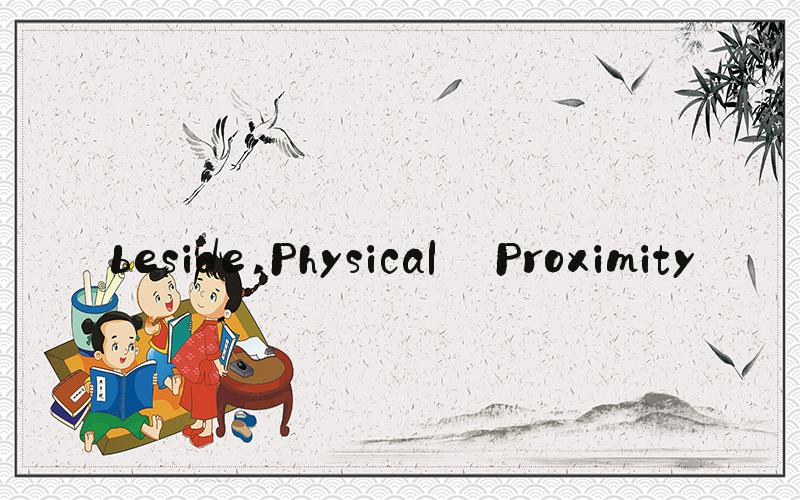
Beside
Beside refers to being next to or in close proximity to someone or something. It can have physical or metaphorical connotations and can be used to describe relationships, emotions, and situations. Here are some examples of how the word “beside” can be used.
Physical Proximity
The most common use of “beside” is to refer to physical proximity. For example, “I sat beside my friend during the movie.” This implies that the speaker was sitting in close proximity to their friend, either on the same bench or chair. “Beside” can also be used to describe the position of objects. “The book is beside the lamp on the table” means that the book is physically located next to the lamp on the table.
Emotional Connotations
“Beside” can also be used to describe emotions or feelings. For instance, “I feel beside myself with grief” means that the speaker is overwhelmed with emotions and is struggling to cope. “Beside” can also be used to describe a sense of inferiority or insignificance. “I feel small beside my successful siblings” implies that the speaker feels insignificant when compared to their successful siblings.
Metaphorical Usage
In addition to its literal meanings, “beside” can also be used metaphorically. A famous example is from Shakespeare’s Sonnet 18: “Shall I compare thee to a summer’s day? Thou art more lovely and more temperate…” The speaker is comparing their love interest to a summer’s day, but then says that their love interest is even lovelier and more temperate. In this context, “beside” implies that the original comparison was inadequate.
Beside vs. Besides
It is important to note that beside and besides are two different words with different meanings. “Beside” refers to physical or metaphorical proximity, while “besides” means “in addition to” or “apart from”. For example, “Besides studying for the exam, I also have to finish my project” means that in addition to studying, the speaker also has to finish their project. “Beside” would not be used in this context.
The Importance of Presence
Whether describing physical proximity, emotional state, or metaphorical comparison, the word “beside” emphasizes the importance of presence. Being beside someone or something implies a connection, a closeness that can bring comfort, support, and understanding. In our busy and sometimes isolated lives, it is easy to forget the power of simply being present and being beside someone. But it is often in these moments of connection that we find our greatest joys and deepest satisfactions.
Conclusion
Overall, “beside” is a versatile word that can be used in a variety of contexts. It is a reminder of the importance of presence and of the connections we make with others. Whether we are physically beside someone or feel connected emotionally or metaphorically, “beside” is a word that carries deep meaning and significance.


